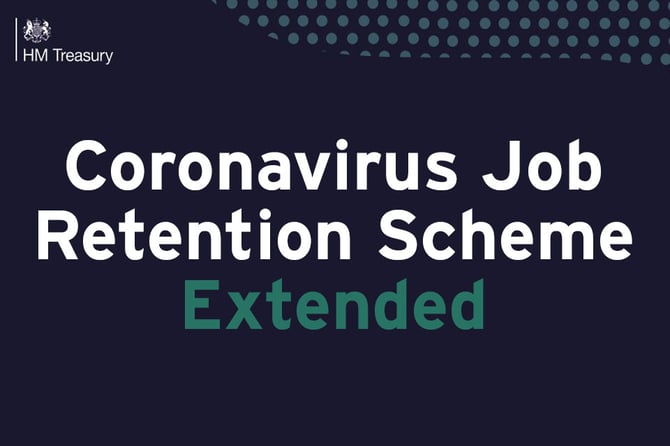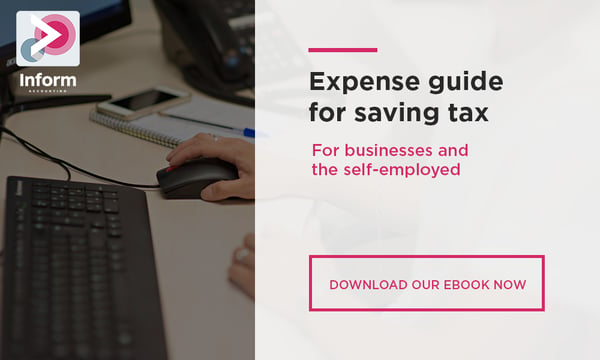BLOG
Furlough scheme reinstated for national lockdown

This weekend was a spooky one, and for more than just one reason! Yes it was halloween, but the nation was addressed by Prime Minister Boris Johnson to announce a month-long national lockdown. The lockdown is due to start on Thursday 5 November and run up to 2 December.
However, there is some positive news… as part of the lockdown support measures for businesses, it was announced that the coronavirus job retention scheme (CJRS) will continue until 1 December 2020 with grants covering 80% of wages, while implementation of the job support scheme (JSS) has been delayed.
The JSS will not now take effect until the CJRS ends on 30 November. Although the national restrictions apply from 5 November to 2 December 2020, the financial support for employers applies from 1 November as the furlough scheme operates on full calendar months.
What support is given?
The furlough scheme has been reinstated with the similar conditions as applied in August 2020.
The CJRS grant will pay for 80% of the employee’s current wages for time not worked, up to £2,500 per month. The employer must pay for all of the employer’s NIC and employer’s minimum workplace pension contributions on those wages.
The employer can top-up the employee’s furlough pay at their own expense, if they wish to.
Business grants paid by local authorities for closed businesses premises will apply in England, the devolved administrations will set their own level of business support (see below).
Which employees qualify?
Employees who were on the employer’s payroll at 30 October 2020 will qualify to be included in CJRS claim for November; they don’t have to have been included in an earlier CJRS claim. The employee must have been paid by the employer, and that pay must have been reported on a RTI return before midnight on 30 October.
Employees on any type of contract can qualify, including zero hours, although more detail on whether contractors or directors are included is expected in the next few days.
Flexi furlough
Flexible furlough will be permitted alongside full-time furlough, so staff may be brought back part-time to say, set up the premises for the lifting of national restrictions, or to prepare for Brexit.
The same rules for flexible furlough will continue to apply as they have done since 1 July, so the employee may be furloughed for a few days or hours per week. There appears to be no minimum time set for furloughed hours or working hours.
However, each furlough claim must be for a period of at least seven consecutive calendar days.
Which employers qualify?
All employers with a UK bank account can claim support under the extended CJRS, there is no financial test to pass for larger employers as applies for the (now postponed) JSS.
Charities and not-for-profit organisations can also claim in respect of their employees.
How to claim?
The claim process will be very similar to that which has applied so far under CJRS, the employer will have to report the hours the employee has not worked in a claim period, and the usual hours.
It is not yet clear whether the employee’s pay must be reported on an RTI return before the CJRS grant is submitted for November pay periods. Further details and legislation are expected to be published shortly.
Self-employed
There was no new information about support for the self-employed, so we must assume the next SEISS grant will be given at 40% of average profits, although this could change before applications for those grants open.
Local grants
Where businesses have been required by law to close, they will be able to apply for a support grant from their English local authority, based on the rateable value of their business premises:
|
Rateable value of premises |
Grant payable per two weeks |
|
Up to £15,000 |
£667 |
|
£15,001 to £50,999 |
£1000 |
|
£51,000 or more |
£1500 |
Different local business grants will be available in Wales, Scotland and Northern Ireland.
Mortgage holidays
Applications for mortgage holidays for up to six months were due to close on 31 October, but this facility will now remain open for borrowers who have been impacted by coronavirus. The FCA will announce details of who can qualify in the next few days.
Source: AccountingWeb
Read more of Inform's tax blogs:
Live page: Accounting advice during business disruption
It's that wonderful time of the year...for fraudsters to pray on taxpayers!
Paying yourself a salary: What are the most tax efficient options for limited company owners?
Four key cashflow issues that could cripple your business (and how to avoid them)...




.jpg?width=1500&height=1000&name=amy-hirschi-K0c8ko3e6AA-unsplash-(5).jpg)

